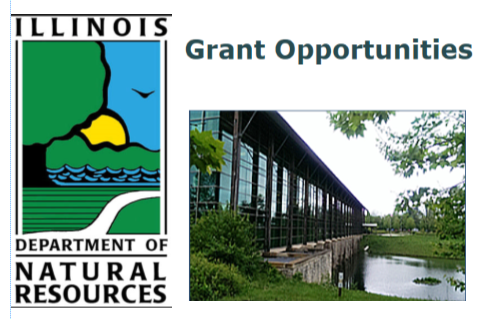Rep. Chris Miller announced today that March 14 is the approaching deadline for grants made available through the Illinois Department of Natural Resources (IDNR). The applications will be accepted through the Recreational Trails Program (RTP), Off-Highway Vehicle (OHV), and Illinois Bicycle Path Grant Programs.
“These grants are one way for our communities to develop or
improve trails for horseback riding or off-road activities that many people in
my district enjoy,” said Rep. Chris Miller. “I represent all or parts of nine
counties and there are several communities that I think could be competitive if
they apply for these competitive grants.”
According to the IDNR, the Recreational
Trails Program (RTP) is a reimbursement grant program that provides 80
percent of project funding with a required 20 percent local match. This grant
program is federally funded and is administered by the IDNR in cooperation with
the Federal Highway Administration (FHWA). The funds can be used to assist
government agencies and trail groups in the rehabilitation, development,
maintenance, and acquisition of recreational trails and related facilities. The
trails may be motorized, non-motorized, or multiple use trails. RTP funds can
also be used for environmental protection and safety education projects related
to trails. This program is funded through the transfer of federal gas
taxes paid on fuel used in off-highway vehicles used for recreational
purposes. The program generally has $1.5 million available for grants,
with a maximum development grant amount of $200,000. There is no maximum
on acquisition grants.
The primary purpose of the Off-Highway
Vehicle Recreational Trails Program (OHV) is to provide financial aid to
government agencies, not-for-profit organizations, and other eligible groups or
individuals to develop, operate, maintain, and acquire land for OHV parks,
trails and trail side facilities that are open and accessible to the public in
Illinois, and to restore areas damaged by unauthorized OHV use. Funds for the
grant program are derived from revenue generated in the State Treasurer’s
“Off-Highway Vehicle Trails Fund.” OHV will reimburse up to 100
percent of total approved project costs up to the maximum. If necessary, the
remainder of the costs will be borne by the project sponsor. OHV is a
reimbursement program, meaning that a project sponsor must have sufficient
cash, donations, or eligible in-kind services to pay for work, and then be paid
back the grant percentage after approval of a reimbursement request. The
OHV program will have approximately $690,000 available for grants in
2019. There are no maximum grant amounts.
The Illinois Bicycle Path Grant Program
(Bike Path) provides financial assistance to eligible local units of government
to assist them with the acquisition, construction, and rehabilitation of public
off-road, non-motorized bicycle paths and directly related support
facilities. Agencies that apply for projects that accommodate additional
trail users, such as equestrians, will receive special consideration in the
review of grant applications. Project applications are limited to land
acquisition or trail development along a single trail corridor. Looped trails
within a single parcel or park site are not eligible for Bike Path
funding. These projects, however, may be eligible for Recreational Trails
Program (RTP) or Open Space Land Acquisition and Development (OSLAD) grant
assistance. The only exceptions are looped trails located within very
large preserves. Bicycle routes sharing existing roadway surfaces are also not
eligible for funding consideration under this program. The Bike Path
program will reimburse up to 50 percent of total approved project costs up to
the maximum allowable cost. The remainder of the costs will be borne by the
project sponsor. The program has approximately $12.1 million dollars
available for project assistance. There is a $200,000 maximum grant
amount for development projects and there is no maximum for acquisition
projects.
Consult the IDNR website at www.dnr.illinois.gov for more information or call
the IDNR Grants main line at (217) 782-7481.
